The 2024 presidential election has already started. The contest on the Republican side is sure to get heated, with former President Donald Trump starting as the frontrunner for his party’s nomination and Gov. Ron DeSantis of Florida expected to be his top rival.
Across the aisle, President Joe Biden appears poised to continue to lead his party, even though many Democrats would like to see someone else running for the White House.
Here’s who has entered the race so far:
Joe Biden
President Joe Biden launched his widely-expected reelection bid on April 25, the four-year anniversary of his 2020 announcement. During that campaign, he cleared the crowded field of Democratic candidates by promoting a message of unity and framing the race as a battle for the soul of the nation. He selected then-California Senator Kamala Harris, who would become America’s first female Vice President, as his running mate.
After becoming President, Biden signed the American Rescue Plan, the coronavirus relief package that delivered many Americans $1,400 checks, alongside other provisions. Later that year, he signed the Bipartisan Infrastructure Law, which provided investments in roads, bridges, and broadband, among other measures. He also signed the CHIPS and Science Act to promote American semiconductor manufacturing, and the Inflation Reduction Act, a landmark climate, health care, and tax package. On the foreign policy front, Biden withdrew American troops from Afghanistan in 2021, and has overseen American aid to Ukraine since the war there began last year.
Read More: The Inside Story of How Biden Cleared the Field for His Re-Election Bid
In the 2022 midterm elections, Democrats outperformed expectations, despite Republican criticism over the messy withdrawal from Afghanistan and persistent inflation under his Administration. Not all Democrats are thrilled with Biden either; polls indicate that a significant share of his party would prefer he didn’t run, and many are concerned about his age, given that he is already the oldest President in American history and would be 82 at his second inauguration.
Previously, Biden served as Vice President to former President Barack Obama. In that role, he became known for getting out in front of the President on LGBTQ rights. Before that, Biden served for more than three decades as the Senator from Delaware. He sponsored the 1994 crime bill—which in his last presidential campaign he referred to as “a big mistake”—as well the Violence Against Women Act. Biden also had two unsuccessful presidential bids earlier in his career, in 1988 and 2008.
Donald Trump
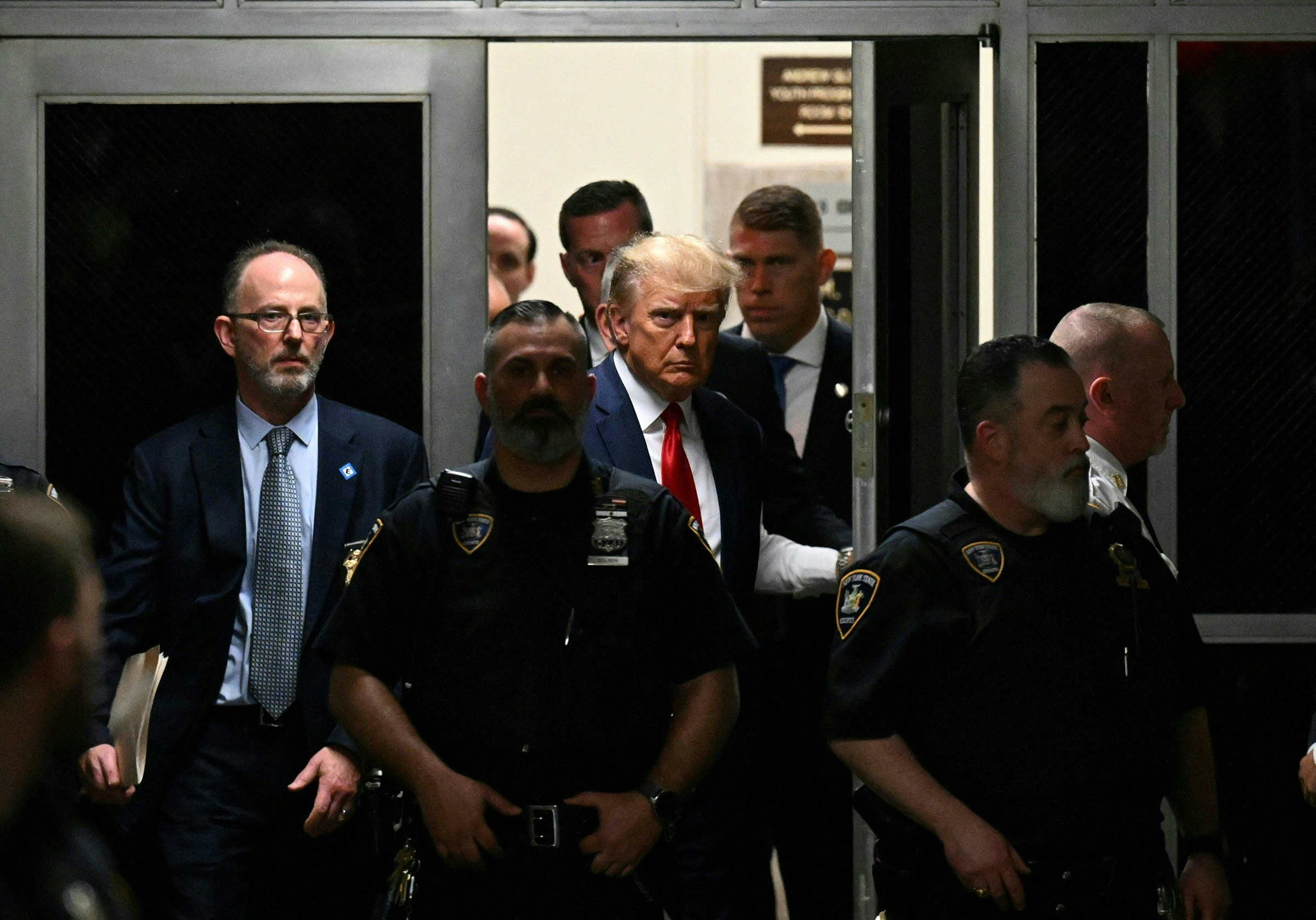
Former President Donald Trump threw his hat back into the ring in November, just a week after the 2022 midterms, whose outcome had proven underwhelming for his party.
The business tycoon was elected President in 2016. The stakes of the election were heightened in February following the death of Supreme Court Justice Antonin Scalia, and Senate Majority Leader Mitch McConnell’s choice to refuse to consider President Barack Obama’s nominee to replace him. Trump argued that the next president should make the appointment. He also campaigned on building a wall at the Southern border and banning Muslims from entering the United States. A month before the election, the Washington Post published the Access Hollywood tape, in which he bragged about groping women.
The controversy continued throughout his presidency. Trump became the only American President in history to be impeached twice, first for soliciting foreign interference in the 2020 election and later, after he lost that election, for inciting an insurrection ahead of the Jan. 6 attack on the Capitol. During Trump’s presidency, special prosecutor Robert Mueller investigated Russian interference in the 2016 election and possible links between the president, his campaign, and Russia. Ultimately, the investigation did not find Trump guilty of criminal conduct, and did not take a clear position on whether Trump obstructed justice. It did charge several of his associates with various crimes.
Trump followed through on many of his campaign promises, passing a big tax cut and appointing three Supreme Court justices during his term. Those appointments cemented a conservative majority on the Court that eventually overturned Roe v. Wade, the decision that protected the right to abortion. Trump also took a hard line on immigration. In 2017, he issued an executive order prohibiting travel from several majority-Muslim countries that became the subject of years of litigation. His administration began construction of his proposed wall at the U.S.-Mexico border, and for a period, separated thousands of parents and their children who had crossed together.
In the final year of his presidency, Trump oversaw the U.S. response to the COVID-19 pandemic. He repeatedly denied the severity and intractability of the pandemic and promoted unproven treatments for the virus. As unemployment surged, he signed the CARES Act, which authorized direct stimulus checks to individual Americans. Trump also made headlines in 2020 for his response to the demonstrations against police brutality and racism in the wake of the murder of George Floyd, in which Trump threatened the use of military force against protestors.
Following his 2020 loss, Trump has continued to raise baseless doubts about the validity of the results, claims that played a role in the deadly Capitol attack. During the 2022 midterms, he largely supported candidates who joined him in questioning the integrity of American elections. In 2023, he became the first current or former President to get indicted, and now faces criminal charges in New York for allegedly falsifying business records related to payments to former adult film actress Stormy Daniels before the 2016 election. Trump is continuing his 2024 campaign despite the indictment.
Read more: Trump Indictment Marks New Volatile Chapter in American Politics
Ron DeSantis
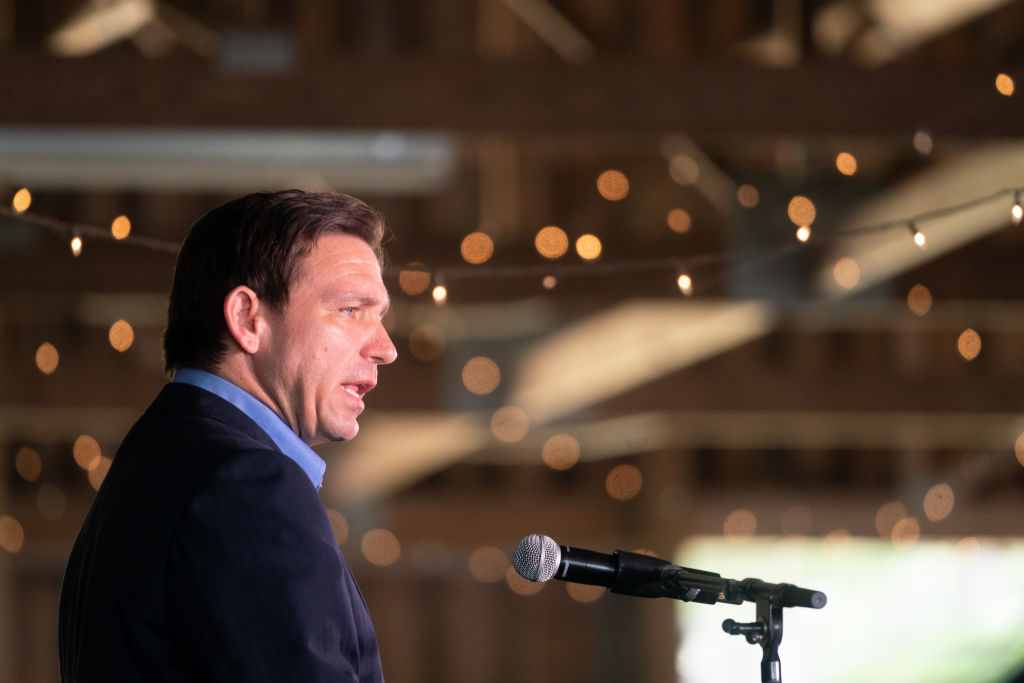
Florida Governor Ron DeSantis launched his presidential bid on May 22 by filing his candidacy with the Federal Elections Commission, releasing a launch video on Twitter, and then participating in a glitchy livestreamed interview on Twitter with Elon Musk, the platform’s owner. DeSantis had long been seen as Trump’s chief rival for the Republican nomination, but waited to enter the race until after the end of session for the Florida legislature.
“Our results in Florida have been second to none,” DeSantis said on Twitter Spaces. “We can and we must deliver big results for America. I pledge to be an energetic executive that will take on the important issues. Biden’s pursued inflationary policies that are hurting working people, we will reverse those policies.”
Before they were rivals, Trump had endorsed DeSantis for governor, which helped him defeat Democrat Andrew Gillum by a slim margin in 2018. DeSantis started his first term by posthumously pardoning the Groveland Four, four Black men who were falsely accused of raping a white woman in 1949, and dedicating millions of dollars to climate resilience. In 2020, under DeSantis’ leadership, Florida became one of the first states to lift pandemic lockdown restrictions for businesses. Public schools in the state reopened for in-person learning that fall.
Read More: The DeSantis Project
Since then, the governor has developed a reputation as an ardent culture warrior. In 2022, he signed a “Parental Rights in Education” law—which critics dubbed the “Don’t Say Gay” bill—and has engaged in an ongoing feud with Disney. This spring, he signed a six-week abortion ban, which will go into effect if the state’s current 15-week ban is upheld in court. He has slammed “wokeness” and spoken out against critical race theory. Last November, he won reelection by nearly 20 points.
Prior to becoming governor, DeSantis spent five years serving in the House of Representatives. Before that, he served for several years in the Navy, deploying to Iraq and working at Guantanamo Bay.
Mike Pence
Former Vice President Mike Pence entered the Republican primary on June 7.
“Different times call for different leadership,” Pence said in his launch video, which highlighted inflation, low wages, border security, foreign enemies, and culture war flash points. “Today our party and our country need a leader that will appeal, as Lincoln said, to the better angels of our nature.”
Throughout his long career in politics, Pence has earned a reputation as a conservative stalwart. Serving as Indiana governor between 2013 and 2017, he signed legislation restricting abortion. Anti-abortion legislation has remained a priority for him after the fall of Roe v. Wade, as he has promised to support “any pro-life legislation that Congress would take up.” When Trump became his party’s presidential nominee in 2016, his decision to select Pence as his running mate was widely seen as an attempt to appeal to evangelical voters.
During the Trump administration, Pence became chair of the White House Coronavirus Task Force. Trump and Pence split publicly after Jan. 6, 2021, when Trump falsely suggested his Vice President had the power to decide the election in his favor, and a deadly riot at the Capitol ensued with some supporters of the former President issuing chants of “Hang Mike Pence!”
Pence previously spent a dozen years in the US House, including two as Republican Conference chairman.
Tim Scott
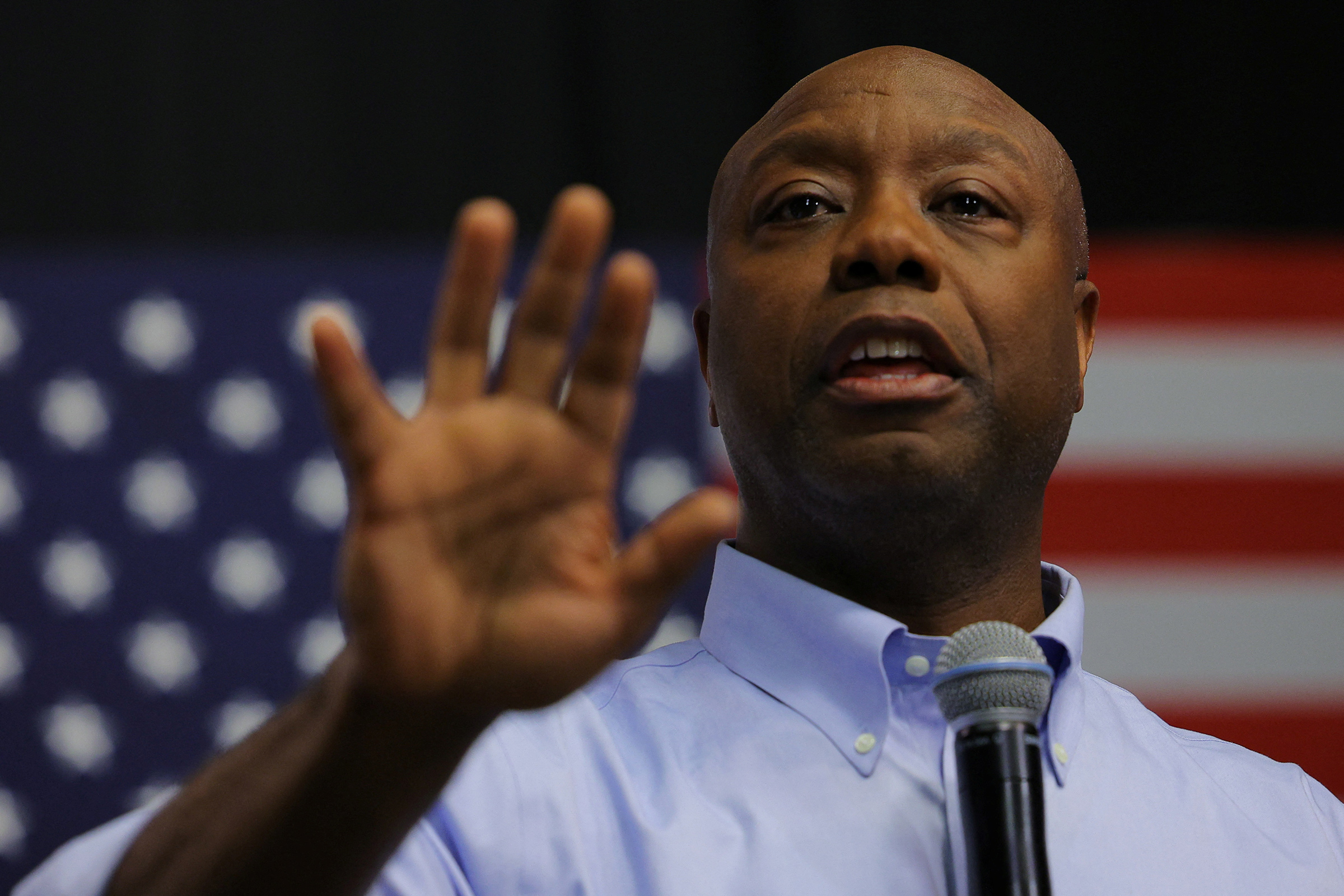
South Carolina Senator Tim Scott officially launched his candidacy for President with an announcement speech on May 22.
In his remarks, he focused on his personal success story, education, crime, border security, and his vision of America as the land of opportunity. “Unfortunately, under President Biden, our nation is retreating away from patriotism and faith,” he said.
“I am the candidate the far left fears the most,” he said. “You see, when I cut your taxes, they called me a prop. When I refunded the police, they called me a token… The truth of my life disrupts their lies.”
Scott earned immediate support from South Carolina Senator John Thune, the second-ranking Republican in the Senate.
Read More: How Tim Scott Plans to Stand Out in a GOP That ‘Craves Catastrophe’
Scott, the only Black Republican Senator, was appointed to his seat in 2013. Before that, he served briefly in the House of Representatives and the South Carolina General Assembly. He began his political career with more than a decade on the Charleston County Council.
In the Senate, Scott partnered with New Jersey Senator Cory Booker, a Democrat, to help establish Opportunity Zones, which created tax advantages for investments in economically-distressed communities. After the murder of George Floyd in 2020, the two men became the lead Senate negotiators on police reform, but failed to reach a compromise. Scott also delivered the Republican response to Biden’s first address to a joint session of Congress in 2021, arguing that “America is not a racist country.”
Scott appeared to be gearing up for a presidential bid for some time, embarking on a “Faith in America” tour that has brought him to early presidential primary states. A pro-Scott super PAC, partly funded by billionaire Larry Ellison, spent upwards of $20 million on behalf of Republican candidates last cycle.
Nikki Haley
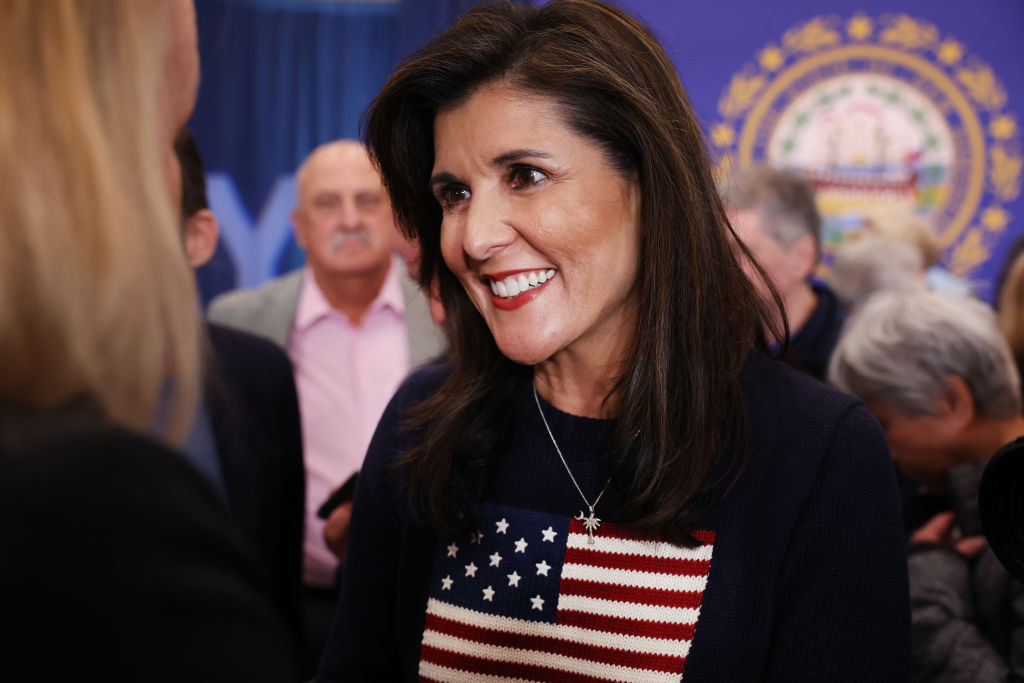
Former South Carolina Governor Nikki Haley launched her campaign in mid-February with a promise of generational change.
Haley served in the South Carolina state House for several years before being elected governor in 2010. At the time, she was the youngest governor in the country, as well as the first woman and first person of color to lead the Palmetto State. One of the defining moments of her career came in 2015, when she led the push to remove the Confederate flag from the state Capitol in the wake of mass shooting that killed nine Black churchgoers at Mother Emanuel AME Church in Charleston. While in office, she supported cuts to the state income tax and opposed a proposed transgender bathroom bill. She also appointed Tim Scott to an open U.S. Senate seat.
Haley delivered the Republican response to President Obama’s 2016 State of the Union speech. She criticized Trump throughout his 2016 campaign, but after ending her second term as governor in 2017, she joined his administration as Ambassador to the United Nations. She resigned from the role at the end of 2018. Since then, she has flip-flopped on her relationship with Trump more than once. At first, after the Jan. 6 attack on the Capitol, she suggested he no longer had a place in the Republican Party. Later, she said the party needed him. In 2021, she said she would not run for president if Trump was running; now, she has launched her bid.
Haley has remained deeply involved in politics since leaving the Trump administration, issuing endorsements and hitting the campaign trail with a variety of Republicans ahead of the 2022 midterms, including Georgia Governor Brian Kemp and Senate candidate Herschel Walker.
Chris Christie
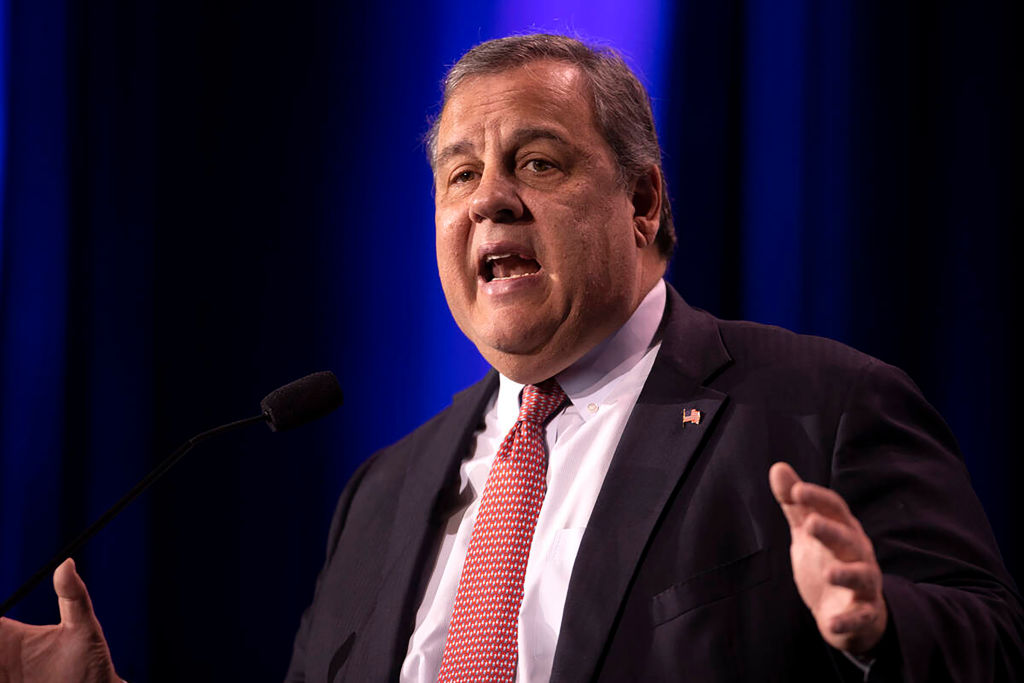
Former New Jersey Governor Chris Christie, a Republican, filed paperwork for his second presidential bid on June 6.
Christie, who registered as a lobbyist in 2020, last ran for president in 2016. He dropped out of the race after performing poorly in New Hampshire and went on to endorse Trump and align with him during his presidency, but became critical of the former president following the January 6 attack on the Capitol. Christie has said there is “no way” he’d support Trump in 2024 and has signaled that he will make attacking the former president a key part of his campaign as other candidates shy away from doing so.
Christie served as governor of New Jersey between 2010 and 2018. His popularity skyrocketed following his response to Hurricane Sandy in 2012. He won reelection by a whopping 22 points in the deep blue state in 2013. The latter part of his tenure was marred by controversy, particularly around “Bridgegate,” a 2013 scandal during which associates of the governor were accused of plotting to close toll lanes on the George Washington Bridge to create traffic for political reasons.
Christie also chaired the Republican Governors Association ahead of the 2014 elections. During the Bush administration, he served as the U.S. Attorney for New Jersey.
Marianne Williamson
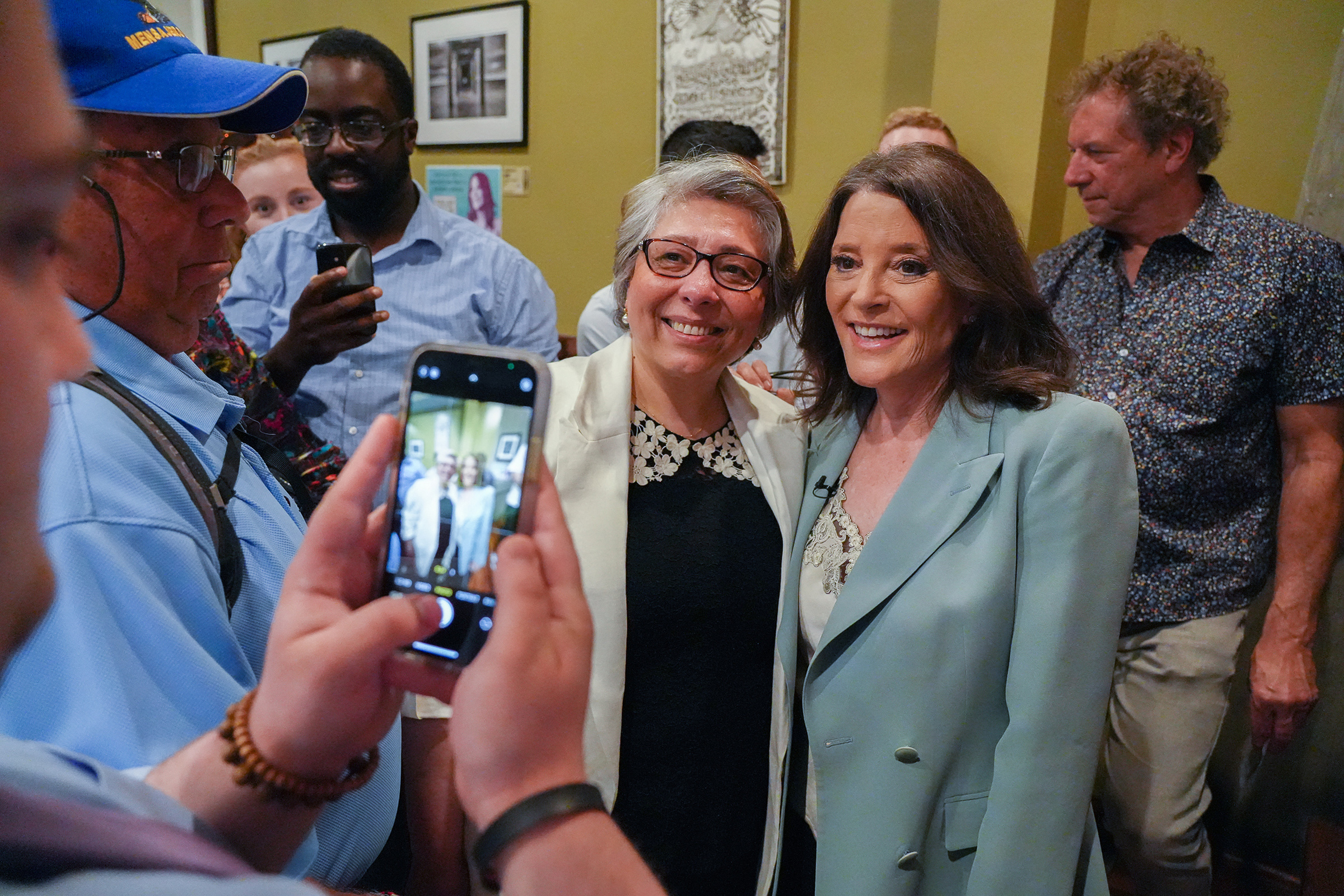
Self-help author Marianne Williamson became the first prominent Democrat to formally jump into the race with a campaign launch on March 4, meaning she’ll likely challenge Biden for the nomination, though he has not yet officially started his reelection campaign.
During her announcement speech, Williamson said the country is facing an “atomizer spray of economic injustice.”
“The opponent is not a specific situation or circumstance,” she said. “The opponent is an economic mindset.” She called for universal health care, free college tuition, free childcare, and paid family leave, among other policies, and said those are “moderate” positions in many other countries and Americans have been “played.”
Williamson, a spiritual adviser to Oprah and an associate of many other celebrities, also ran for President in the Democratic Party’s crowded 2020 field, drawing attention on the debate stage for saying her first act as president would be to call New Zealand’s then-Prime Minister Jacinda Ardern and tell her, “Girlfriend, you are so on.” Williamson drew criticism for controversial comments on vaccines and antidepressants. She dropped out of the 2020 race before the first primaries, facing dwindling funds and dismal polling.
Earlier in her career, Williamson ran for Congress in Southern California as an independent, placing fourth in the 18-person 2014 primary. Several of her books have become New York Times bestsellers and she is known for authoring the quote, “Our deepest fear is not that we are inadequate. Our deepest fear is that we are powerful beyond measure.”
Read more: For Marianne Williamson, the Bernie Sanders Lane Looks Wide Open
Vivek Ramaswamy
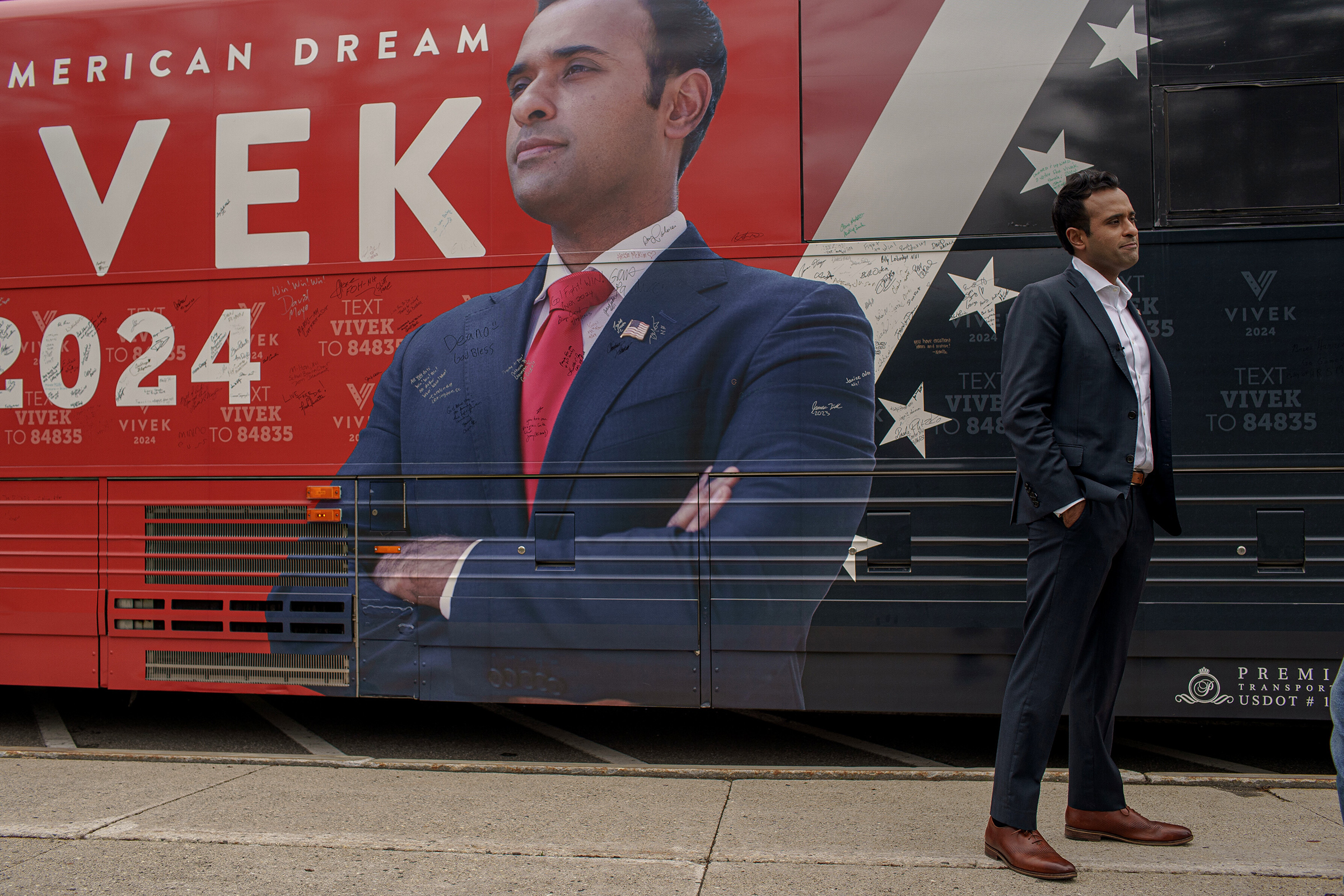
Entrepreneur and author Vivek Ramaswamy announced his presidential bid on February 21. Ramaswamy, running as a Republican, has made his name by slamming what he calls “woke” corporations, and especially by criticizing environmental, social, and governance investing. After founding Roivant Sciences, a biotech company focused on drug development, he published two books: Woke, Inc.: Inside Corporate America’s Social Justice Scam and Identity Politics, the Death of Merit, and the Path Back to Excellence, the first of which was a New York Times bestseller.
In 2022, he co-founded Strive, an asset management company which markets itself as a way to avoid mixing business with politics. Ramaswamy was previously included in Forbes’ list of richest entrepreneurs under 40, with a reported net worth of $500 million.
The son of Indian immigrants, Ramaswamy’s launch video focused on “a national identity crisis” that he says has replaced America’s foundational values like free speech and patriotism with a focus on the country’s divisions. In an interview with the New York Times, Ramaswamy said his first act as President would be to repeal the executive order that bans discrimination and requires affirmative action for federal contractors.
Asa Hutchinson
Former Arkansas Gov. Asa Hutchinson announced his candidacy on April 2 in a televised interview with ABC News, and formally launched his campaign on April 26. Hutchinson recognized the challenging political landscape the country is facing at the moment, but says he feels his experience and “consistent conservatism” will resonate with Americans.
“I’ve traveled the country for six months, I hear people talk about the leadership of our country. I’m convinced that people want leaders that appeal to the best of America, and not simply appeal to our worst instincts,” Hutchinson said during the ABC interview.
Hutchinson previously served as a Congressman from 1997 to 2001, serving as one of the House managers during Bill Clinton’s impeachment trial. He then spent time as the director of the Drug Enforcement Administration before becoming the undersecretary for border and transportation for the U.S. Department of Homeland Security from 2003 to 2005. The Republican politician went on to win two gubernatorial races, serving as governor from 2015-2023, but he could not run for re-election due to the state’s term limits.
Hutchinson distinguished himself as part of the “non-Trump” lane instead of the “anti-Trump lane,” saying he thinks Donald Trump should withdraw from the race after being indicted.
Robert F. Kennedy Jr.
Robert F. Kennedy Jr., an environmental lawyer who became an infamous source of vaccine misinformation during the pandemic, entered the Democratic primary race on April 19.
Kennedy is the nephew of former President John F. Kennedy and the son of Robert Kennedy, who was assassinated during his own presidential bid in 1968. Members of his family have publicly criticized him for his comments about vaccines.
Kennedy has said he is not anti-vaccine, but has raised doubts about their safety since before the pandemic and blamed them for causing autism, a theory which has been widely discredited. Last year, he invoked the Holocaust when discussing the government’s pandemic response. He later apologized.
Read more: Inside the Very Online Campaign of RFK Jr.
Will Hurd
Former Texas Congressman Will Hurd, a vocal Trump critic, threw his hat in the ring for the 2024 GOP race for president in late June.
Although considered a long-shot for the party’s nomination, Hurd is hoping to build momentum as a more moderate alternative to the Republican front-runner. In a campaign video posted on Twitter, Hurd said that the “soul of our country is under attack” and listed illegal immigration, inflation and other problems as his motivation to run.“Our enemies plot, create chaos, and threaten the American Dream. At home, illegal immigration and fentanyl stream into our country. Inflation, still out of control. Crime and homelessness growing in our cities,” Hurd says in the video. “President Biden can’t solve these problems—or won’t. And if we nominate a lawless, selfish, failed politician like Donald Trump—who lost the House, the Senate, and the White House—we all know Joe Biden will win again.”
During his six years in Congress, Hurd built a reputation for seeking bipartisan compromise and became the chamber’s only Black Republican during his final two years in office. Despite being a Trump critic, he voted against Trump’s first impeachment in 2019. He opted not to seek reelection in 2020 in order to “pursue opportunities outside the halls of Congress to solve problems at the nexus between technology and national security.” He has spent the last year traveling the country on a tour to promote his book.
Hurd has been outspoken in his criticism of Trump following his indictment and arrest on federal charges over his alleged mishandling of classified documents, and has said that he would not pardon the former president if convicted.
Larry Elder
Conservative talk radio host Larry Elder announced his White House bid on April 20 on Fox News’ Tucker Carlson Tonight. This is his second foray into politics. In 2021, he became the Republican frontrunner in the effort to recall California Governor Gavin Newsom, which failed by a significant margin. During that campaign, he came under fire for his past comments about women.
“America is in decline, but this decline is not inevitable,” Elder tweeted. “We can enter a new American Golden Age, but we must choose a leader who can bring us there. That’s why I’m running for President.”
Asked by Carlson about the issues motivating his presidential bid, he cited the border, crime, and attacks on the police. Elder, who is Black, also mentioned “the absolute disgraceful lie that the Democrats put on everything, which is that America is systemically racist.”
Elder began hosting The Larry Elder Show nearly three decades ago and has been on the radio on and off since then. Earlier in his career, he practiced law.
Cornel West
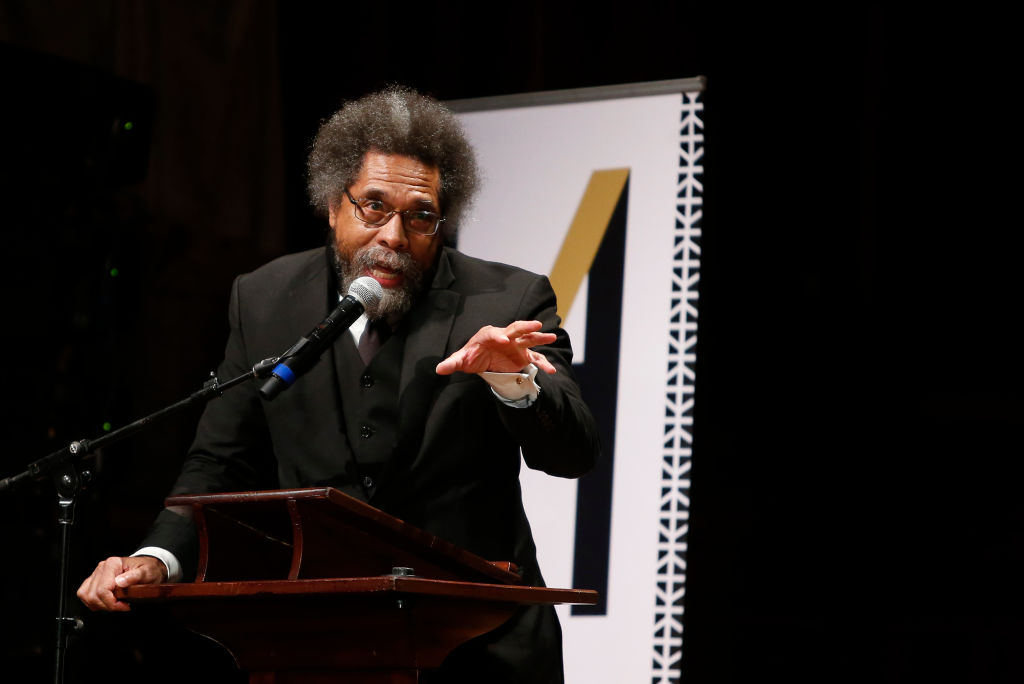
Dr. Cornel West, a progressive scholar and activist, launched his presidential bid on June 5 as a member of the People’s Party, which was founded by a staff member of Vermont Senator Bernie Sanders’ 2016 presidential campaign.
West is currently the Dietrich Bonhoeffer Chair at Union Theological Seminary and has worked in leadership for the Democratic Socialists of America. He has been a professor at Harvard, Princeton, and Yale. During the Obama administration, he was a frequent critic of the Democratic president. Before that, in 2000, West was a senior adviser for former New Jersey senator Bill Bradley’s presidential campaign before backing Green Party Nominee Ralph Nader. West has also written numerous books.
In his announcement video, West stressed the importance of a living wage, decent housing, women’s bodily autonomy, access to health care, and democracy.
“Neither political party wants to tell the truth about Wall Street, about Ukraine, about the Pentagon, about Big Tech,” he said in the video.
Doug Burgum
North Dakota Governor Doug Burgum, a Republican, launched his presidential bid with an announcement speech in his home state on June 7.
Burgum has served as his state’s governor since 2016. This year, he has signed laws restricting abortion and care for trans people, but has spent much of his tenure focusing on the economy and energy, which are also expected to feature prominently in his presidential campaign.
Earlier in his career, he led Great Plains Software, a technology company which he eventually sold to Microsoft for more than $1 billion.
Francis Suarez
Miami Mayor Francis Suarez filed paperwork to run for president on June 14. Suarez, a Republican, has served in the nonpartisan position of mayor since 2017 and was reelected in 2021, winning both races in landslides. He is also a former president of the nonpartisan United States Conference of Mayors and previously served for eight years on the Miami City Commission.
While in office, Suarez has focused on promoting technology and entrepreneurship, reducing violent crime, and fighting climate change. The mayor has said he did not vote for Trump in 2016 or 2020. He has also been critical of DeSantis for the governor’s fight with Disney.
In an interview with Good Morning America on June 15, Suarez emphasized his relative youth and the fact that he is the first Hispanic candidate in the race.
“I’m focused on not just winning the 2024 election,” the 45-year-old attorney said. “I’m focused on creating a brand of politics that can win generational elections.”
-With additional reporting by Solcyre Burga and Nik Popli
More Must-Reads from TIME
- How Canada Fell Out of Love With Trudeau
- Trump Is Treating the Globe Like a Monopoly Board
- Bad Bunny On Heartbreak and New Album
- See Photos of Devastating Palisades Fire in California
- 10 Boundaries Therapists Want You to Set in the New Year
- The Motivational Trick That Makes You Exercise Harder
- Nicole Kidman Is a Pure Pleasure to Watch in Babygirl
- Column: Jimmy Carter’s Global Legacy Was Moral Clarity
Write to Mini Racker at mini.racker@time.com